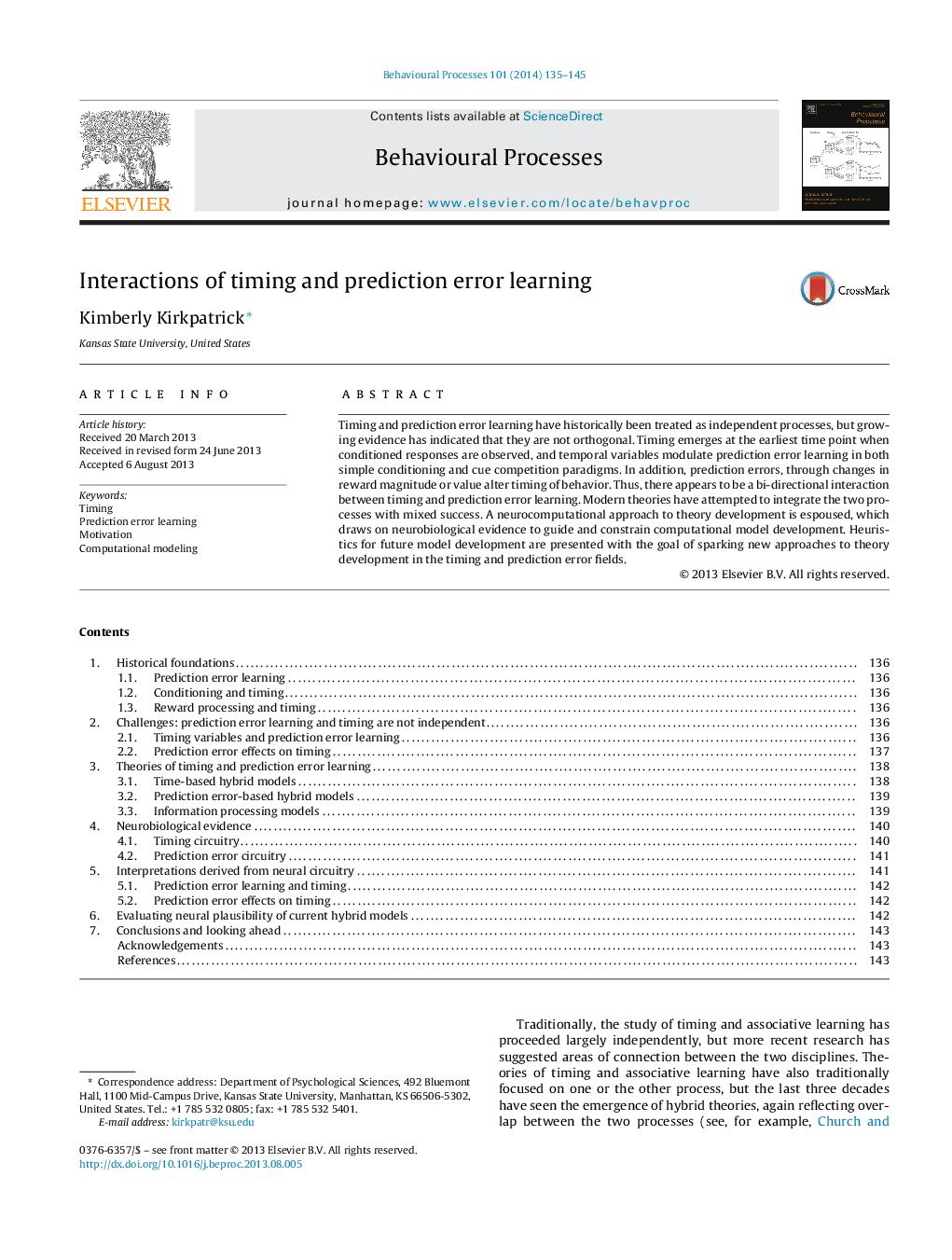| Article ID | Journal | Published Year | Pages | File Type |
|---|---|---|---|---|
| 8497390 | Behavioural Processes | 2014 | 11 Pages |
Abstract
Timing and prediction error learning have historically been treated as independent processes, but growing evidence has indicated that they are not orthogonal. Timing emerges at the earliest time point when conditioned responses are observed, and temporal variables modulate prediction error learning in both simple conditioning and cue competition paradigms. In addition, prediction errors, through changes in reward magnitude or value alter timing of behavior. Thus, there appears to be a bi-directional interaction between timing and prediction error learning. Modern theories have attempted to integrate the two processes with mixed success. A neurocomputational approach to theory development is espoused, which draws on neurobiological evidence to guide and constrain computational model development. Heuristics for future model development are presented with the goal of sparking new approaches to theory development in the timing and prediction error fields.
Related Topics
Life Sciences
Agricultural and Biological Sciences
Animal Science and Zoology
Authors
Kimberly Kirkpatrick,
